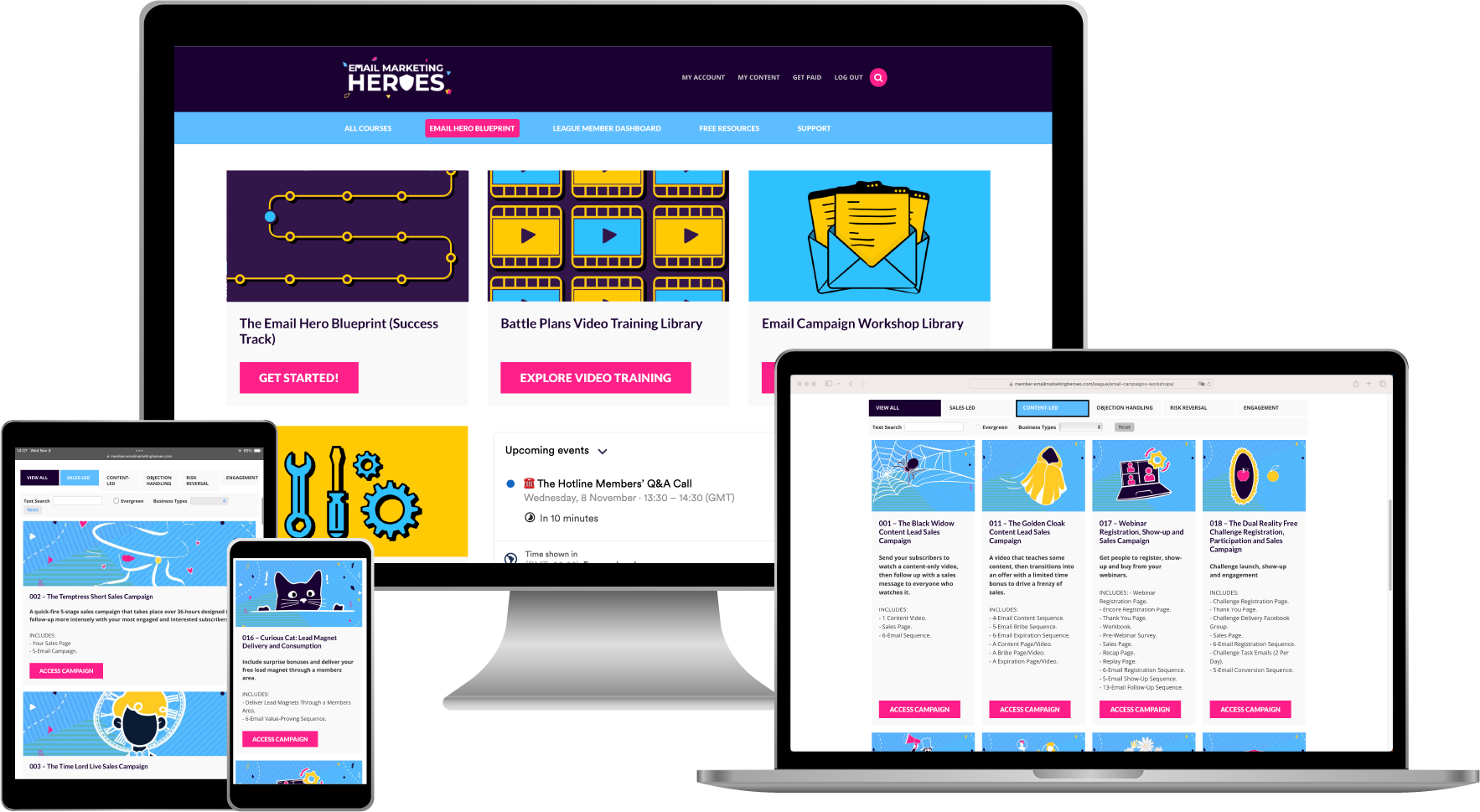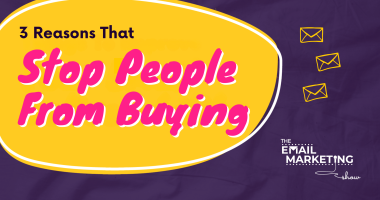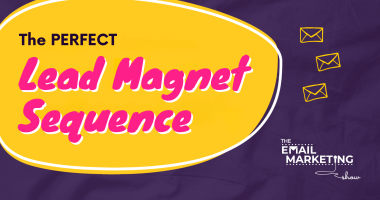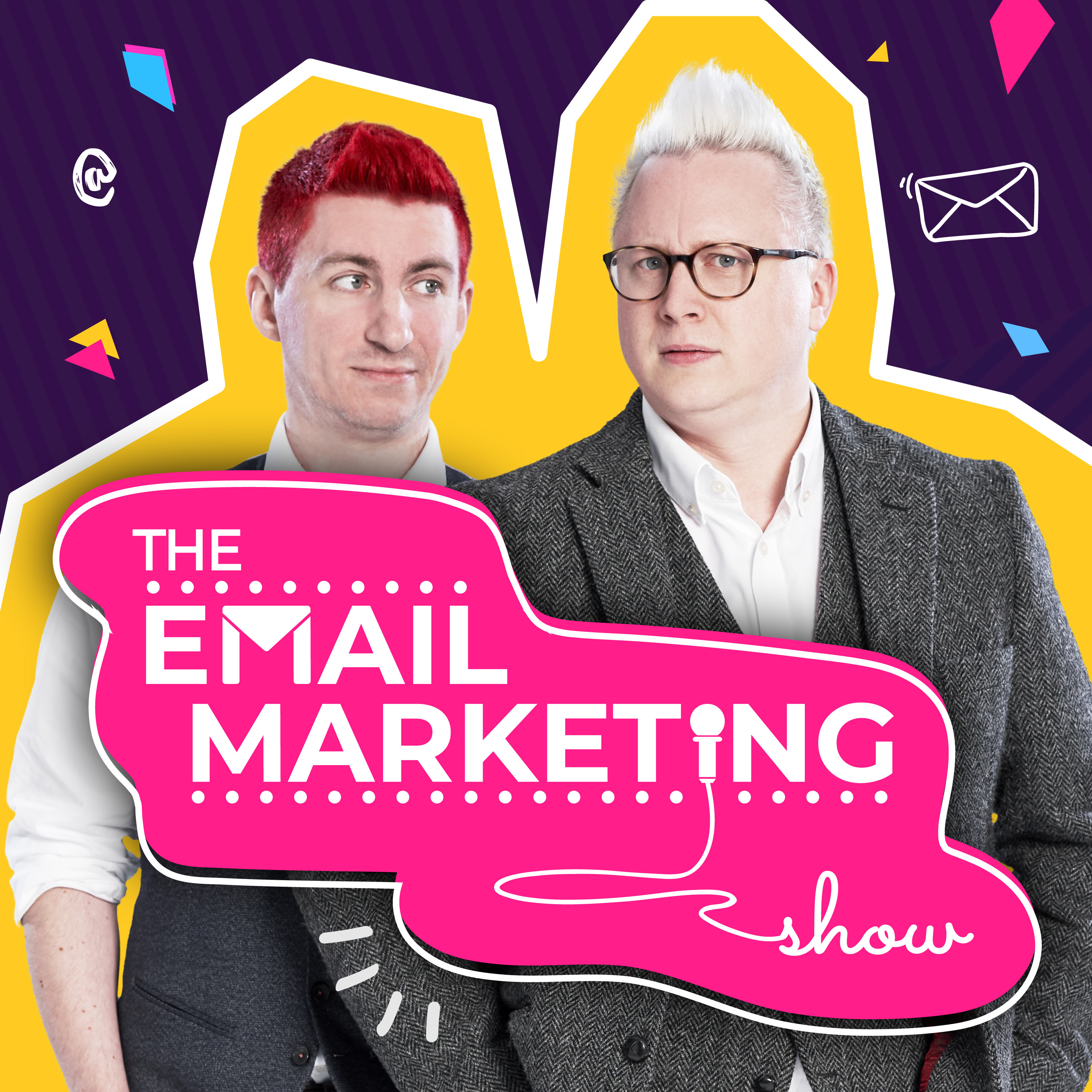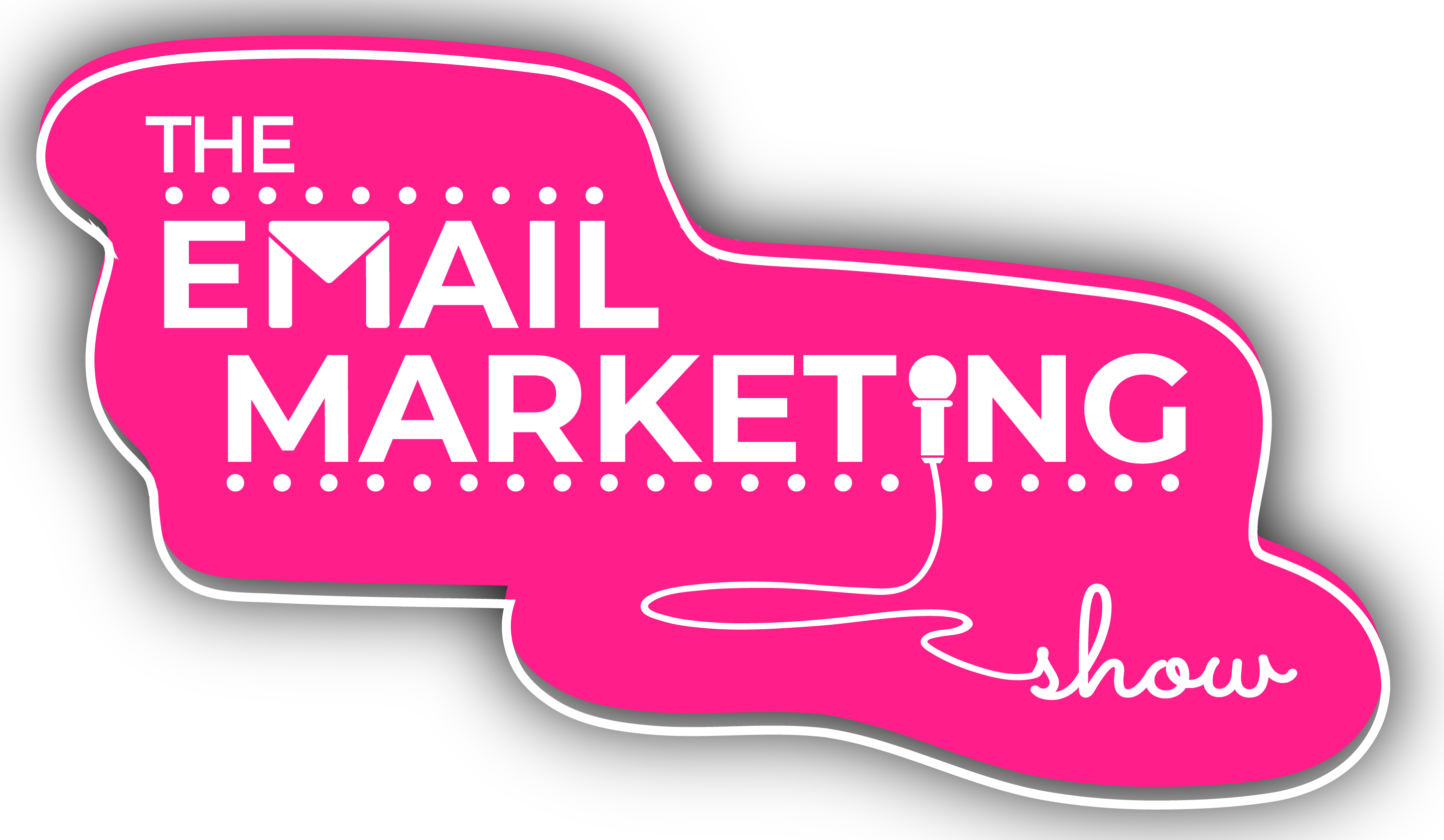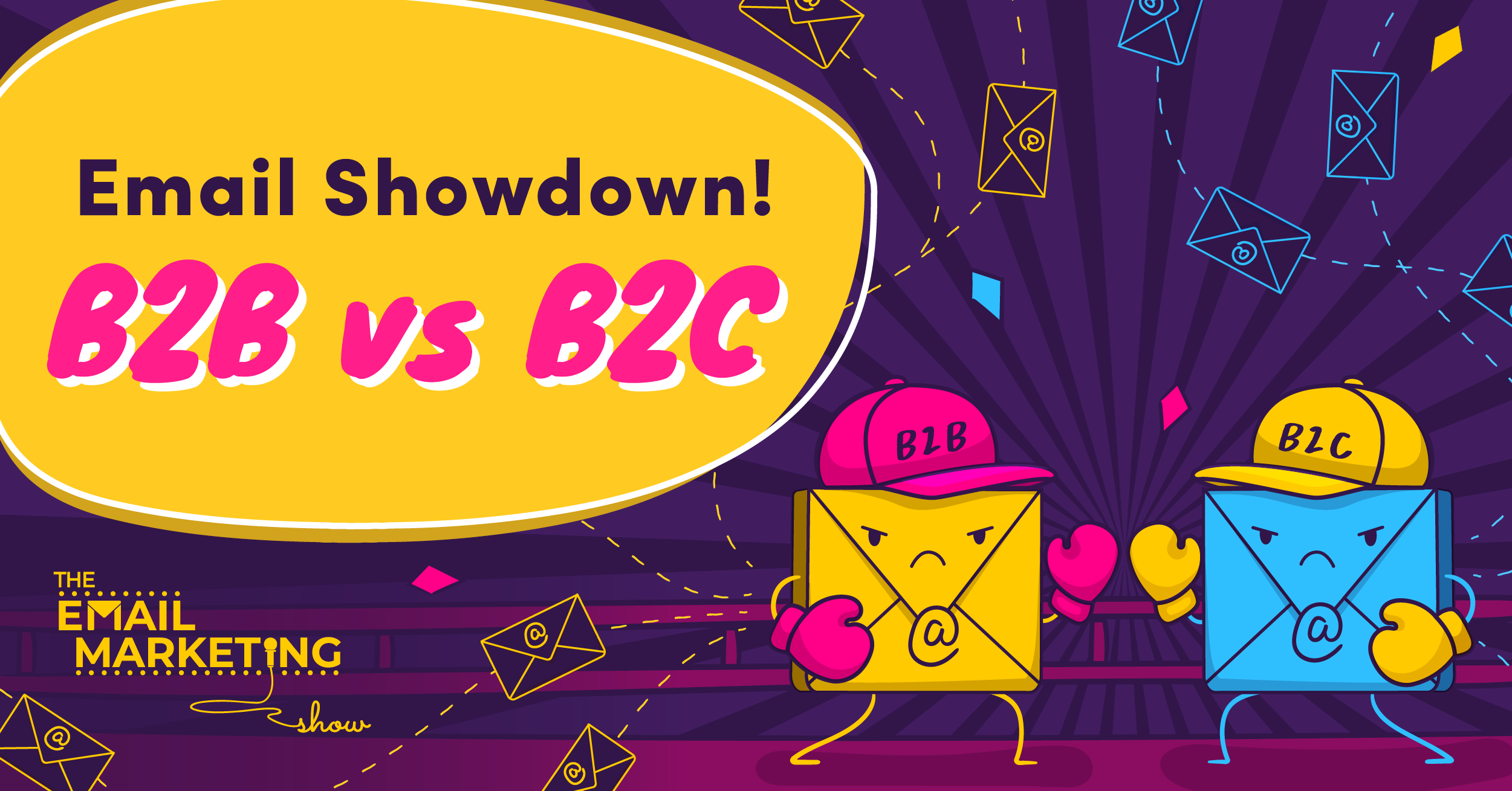
Email Showdown! B2B Vs B2C Emails – What Are The Differences And Who Wins The Ultimate Email Marketing Crown?
Is there a difference between B2B vs B2C email marketing? What works best? And can we take some of the best strategies from B2C and apply them to B2B?
Let's have a big ol' email showdown and find out which type of email marketing wins!
SOME EPISODE HIGHLIGHTS: (0:29) Grab our amazing resource Click Tricks totally for FREE! (3:23) What do we mean by B2B, B2b, and B2C? (6:50) The difference between B2B and B2C email marketing. (9:46) What about the different sales cycles between B2B and B2C? (12:13) Who is sending your emails? (16:06) How do people join your list? (19:33) What can B2B learn from B2C email marketing? (24:20) Subject line of the week.
What do we mean by B2B, B2b, and B2C?
We believe there are three categories of businesses when it comes to selling:
- B2B – business to BIG business.
- B2b – business to small business.
- And B2C – business to consumer, where you sell things to do with people's hobbies and lives.
Most of the businesses we sell to are B2b, which means we sell to owner-run businesses or a one-person band. The owner may be working with a partner or a small team, but the business is small. And we consider ourselves one of those businesses too as unless you’re making more than $10 million a year, you're still a small business.
The key here is that businesses in the B2b category behave like consumers. When buying products or services for their company, business owners tend to use their own money. So it's worth bearing in mind that at the end of your emails, there are human beings who expect to hear from you in a certain way.
The difference between B2B and B2C email marketing
Let's say you're a large government lobbying organisation to do with climate change. You'll be expected to show up in a way that's very different from the way we show up in people's inboxes, for example (i.e. with rude jokes full of innuendo and swear words!) The reason we act the way we do is because of our understanding of ourselves and our market. We show up in a way that’s acceptable by our market but that’s also different and makes us stand out.
A large government lobbying organisation will communicate with its clients in a completely different way. They still have to build trust and authority, just like all of us do, but it’s done differently. If they started going off on a tangent about something silly (like we do in our emails), that wouldn’t give the right indicator for them as a company.
And it’s not just about the words because those only contribute to a small percentage of the way someone may interpret that message. How you say something is what allows people to read between the lines and get the real essence of what you're like. You can build trust and authority by showing testimonials and social proof, but you can also do it through the tone in which you speak. If you get an email that reads as if a college professor wrote it, it'll have a different level of credibility than something jokey.
The words aren’t that important. What matters the most are the campaign structures that you create, the stories you put together, and the tone you use. They can be ridiculous and funny (if you want to) for B2C but more authoritative and professional if your market is more serious. And the beauty of the campaigns we offer inside our membership The League is that you can take the emails and change the words without breaking the whole thing.
What about the different sales cycles between B2B and B2C?
Sales cycles may take a little longer for B2B compared to B2C. With B2C (and possibly B2b), you may find that consumers have the ability and the power to buy a little faster. And yet, they will still need your product to be presented through different offers before they buy.
For example, in B2B, you could use different email sequences or email engines (as we call them) for different phases of the sales cycle to move your prospective clients through the cycles. We often talk about having three email engines:
- The lead or subscriber engine is designed to get leads to become first-time customers.
- Then you have the customer engine to get people to buy from you again.
- And then you have the winning customers back engine, aimed at the people who haven’t bought from you for a while.
With B2B, you may even have multiple phases of a sales cycle. It could be that you've identified some leads, then booked an initial meeting, then maybe booked a demo, followed by a consultation period. After that, you may need to go through Ts&Cs and the specifics of the product the client is going to buy, and then finally you seal the deal. You may even have a maintenance package after that. So you might need a bunch of email campaigns to move people from one phase to the next. That’s what email marketing helps you do. It helps you move people from where they are to the next step until they’re ready to buy. It’s a bit like a game of rounders or baseball, where you need to focus on moving from one base to the next.
Who is sending your emails?
Something we recommend for B2B and B2b as well as B2C is to be consistent with who the email comes from. Because people buy from people. When you send an email with the objective to move someone from one stage of the buyer’s journey to the next, you want that email to be from a human being.
That's why we recommend you use your name, the salesperson's name, or even a fictional character’s name if you want. Whatever you do, use an actual name, and you'll see your open rates go up. That's because the level and depth of your relationship with that person are going to increase. Relationships are established with people and things we can relate to. So both the person sending the email and the copy of the email itself have to be something that people can relate to.
Think about it – on a day-to-day basis, we all get emails from a lot of institutions and organisations (such as banks or credit card companies), and they all tend to come from the company. But we think that should change – emails should come from a person. Because that allows us to establish deeper relationships and feel like we're communicating with actual humans.
In the past, small companies would pretend they had several members of staff to make themselves look bigger. Faking having bigger operations was a thing! But it's not anymore, and small businesses embrace having that personal touch. The world has shifted, but big businesses continue to try and look like big businesses. Remember – there's power in being seen as an individual. In a world that's being taken over by robots and AI, you want to know that there's an actual human being behind the emails you receive. If all big businesses started doing that, it would be powerful.
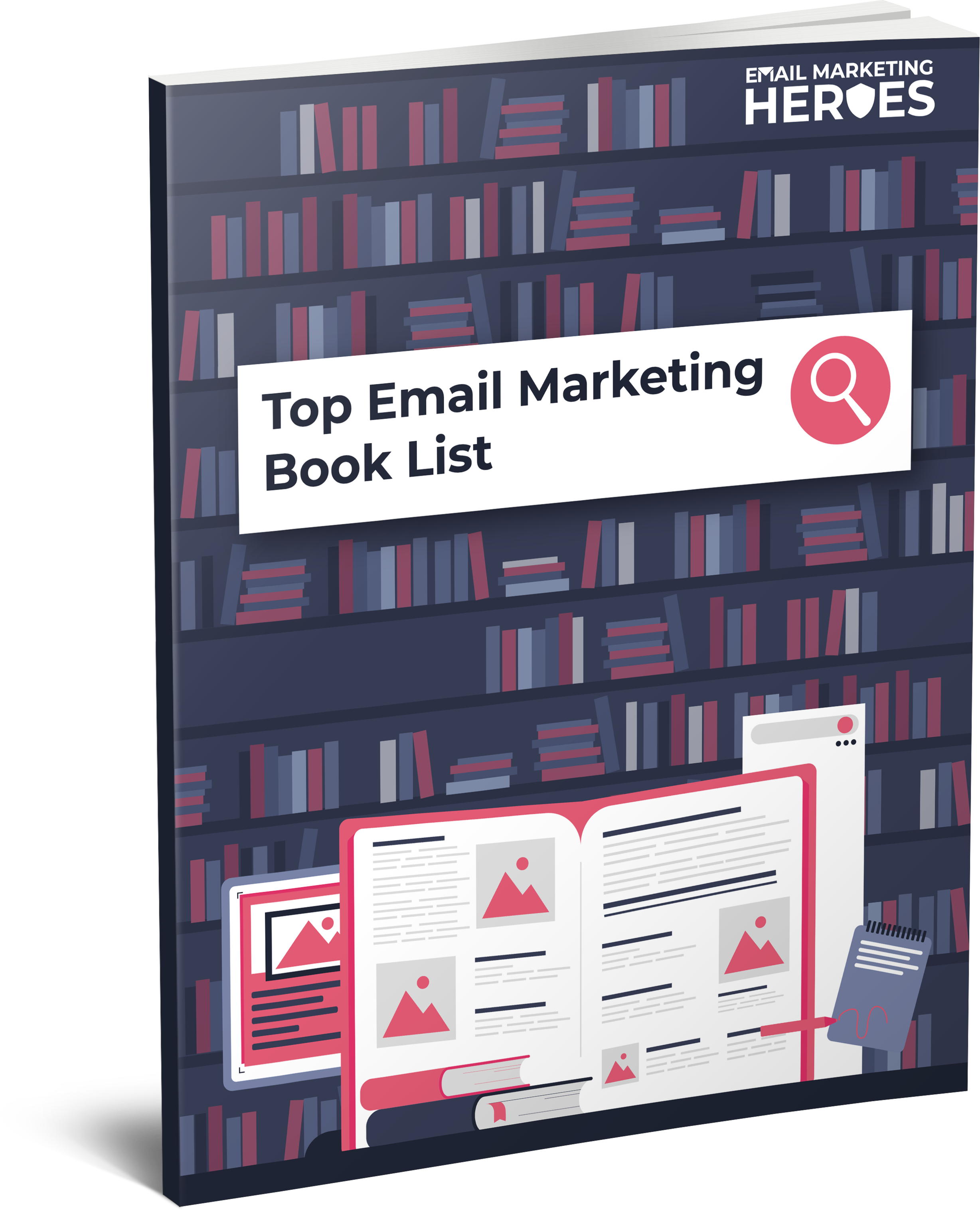
The Top 10 Books To 'Power Up' Your Email Marketing
10 book recommendations that will improve all areas of your email marketing (including some underground treasures that we stumbled upon which have been game-changing for us).
How do people join your list?
What was your relationship with that person in the first place? If someone joins your newsletter with the expectation that John will be sending daily tips about DIY, make sure John sends daily tips about DIY! Don't have the emails suddenly come from a company people can't even recognise.
Also, always remember you're sending emails to human beings. People in B2B or B2b might be buying your product because they're trying to help their business or the company they work with, but they’re also serving themselves. So how can your lead magnet, your email content, and the offers you make benefit the person directly? Can you save them time? Can you make them look better with their boss? Help them get a pay rise or a promotion?
Think about serving the individual at the end of each email, even in B2B and B2b. We have a structure we teach our clients that is a way of extrapolating and communicating the benefits of something in a deep way that resonates with people. So if you're selling a solution that helps people grow their business, you can mention it'll get them more employees, or it'll afford them a better live streaming setup, for example. These are all business benefits. But because you're talking to the human being who’s running the business, you also want to mention the personal benefits to the individual.
For instance, we may say that by building our SCORE email engine, you’ll be able to grow your business, but also for you personally, you’ll know that every new lead that comes in is being taken care of and always presented with the best possible offers and opportunities to buy without you having to be physically there. A great personal benefit is that you can be at home with your family and spend more time with them, for example. Your business will be growing, amplifying, and compounding the sales while you take the dog for a walk or your children swimming.
What can B2B learn from B2C email marketing?
Largely speaking, B2B needs more personification – we need to bring some elements of B2C email marketing into it. How? You can get creative and use a mascot or someone who works in your business and push them to the forefront of your marketing. You could even create characters to establish an emotional bond with your audience because that's essential to be able to relate to someone. And without a human being, there's no connection. How can you connect with a brand if you think of their company in terms of tall glass skyscrapers in the middle of some city?
People in the UK will be familiar with comparethemarket.com, which have a meerkat as the character that’s front and centre of their marketing. They personified an insurance company, which is traditionally something very dry. And that's genius because the meerkat allows us to create an immediate emotional resonance with that brand. And that takes up more space in our brains than a company without a person behind it. Or think about gocompare.com, whose face is a Welsh opera singer. You may not want to go to these extremes, but whatever you do, show up as a person.
You could do that by introducing people from your team and sharing something they said, for example. If you look at a lot of what comedians do, they share naturally funny stories inspired by their family or friends. All the comedian has to do is deliver the story in a way that doesn’t remove the funny aspect of it. So you could share things that your team or your customers say. They don’t have to be funny – it's just about using natural content from what’s around you. Because these are the things that build relationships with people. It’s about humanising your content because you’re human and your customers are humans! And it’s time to push a more H2H (human-to-human) type of communication in email marketing.
Subject line of the week
This week’s subject line is “I’m spilling the tea…” which is a phrase that commonly refers to gossiping. But the story in the email was genuinely about Rob spilling a cup of tea on a plane! And this makes the subject line interesting. You take a commonly used phrase that means something, and you use it literally in your email. It doesn’t feel like a tricky subject line. But when you read the email, you find it goes in a different direction than where people expect. And that's what works well, so check it out!
Useful Episode Resources
Related episodes
5 MAJOR Problems With Your B2B Email Marketing (And How To Easily Fix Them).
How To Send Personalised Email To All The Right People – Getting Friendly With Joe Fier.
FREE list to improve your email marketing
If you want to write better emails, come up with better content, and move your readers to click and buy, here's how. We put together this list of our Top 10 most highly recommended books that will improve all areas of your email marketing (including some underground treasures that we happened upon, which have been game-changing for us). Grab your FREE list here.
Join our FREE Facebook group
If you want to chat about how you can maximise the value of your email list and make more money from every subscriber, we can help! We know your business is different, so come and hang out in our FREE Facebook group, the Email Marketing Show Community for Course Creators and Coaches. We share a lot of training and resources, and you can talk about what you're up to.
Try ResponseSuite for $1
This week's episode is sponsored by ResponseSuite.com, the survey quiz and application form tool that we created specifically for small businesses like you to integrate with your marketing systems to segment your subscribers and make more sales. Try it out for 14 days for just $1.
Join The League Membership
Not sick of us yet? Every day we hang out in our amazing community of Email Marketing Heroes. We share all of our training and campaigns and a whole bunch of other stuff. If you're looking to learn how to use psychology-driven marketing to level up your email campaigns, come and check out The League Membership. It's the number one place to hang out and grow your email marketing. Best news yet? You can apply everything we talk about in this show.
Subscribe and review The Email Marketing Show podcast
Thanks so much for tuning into the podcast! If you enjoyed this episode (all about B2B vs B2C email marketing) and love the show, we'd really appreciate you subscribing and leaving us a review of the show on your favourite podcast player.
Not only does it let us know you're out there listening, but your feedback helps us to keep creating the most useful episodes so more awesome people like you can discover the podcast.
And please do tell us! If you don't spend time on email marketing, what do you really fill your working days with? We'd love to know!

